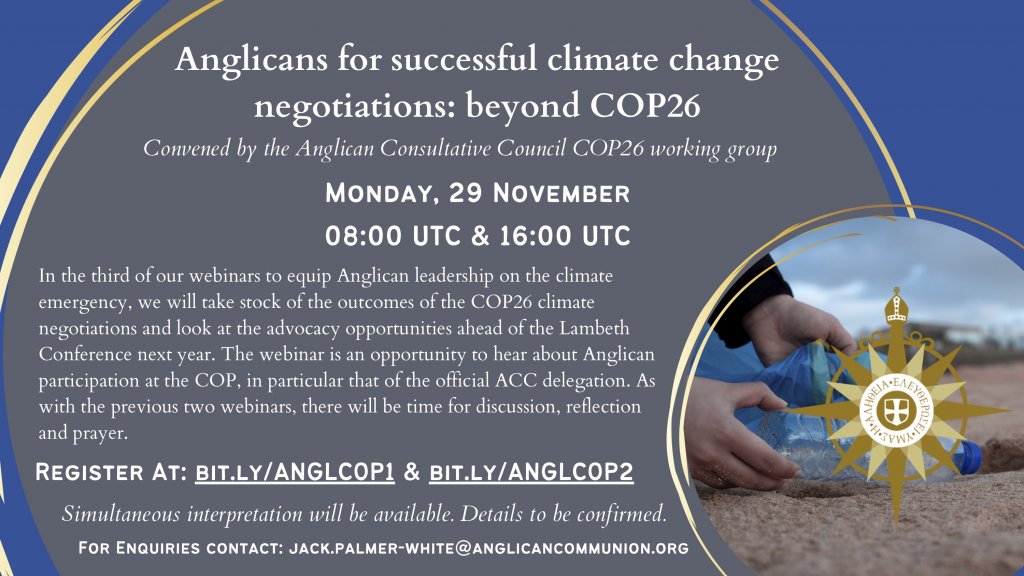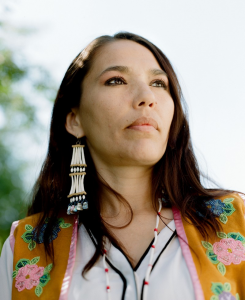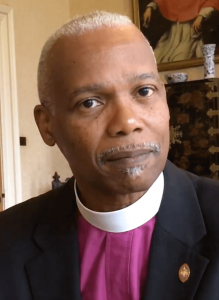The world’s eyes will soon be focused on Glasgow, Scotland as world leaders gather for COP26, the 26th Conference of the Parties (COP) to the United Nations Framework Convention on Climate Change (UNFCCC). Our accompanying piece sets out the particular importance of COP26 and how global faith leaders have been speaking into it. In this piece we look at why COP26 matters to Anglicans and how the Anglican Communion will be engaging with it.
Creation care is at the heart of Anglican identity
At the heart of Anglican identity, as we proclaim the Good News of the Kingdom in word and deed, is the mandate to respond to human need by loving service; to transform unjust structures of society, challenge violence of every kind and pursue peace and reconciliation; and to safeguard the integrity of creation, and sustain and renew the life of the earth. This holistic engagement with the world, expressed in the Anglican Marks of Mission, reflects Jesus’ mission to bring good news to the poor, release to the oppressed and abundant life for all. [Luke 4:18 and John 10:10]
Climate change impacts and responses across the Communion
People across the Anglican Communion are on the frontline of the climate emergency. They are experiencing the devastating impacts of both acute climate shocks (such as hurricanes and wildfires) and slow onset disasters (such as shrinking water resources and rising sea levels).
However, Anglicans are not only affected; they are also responding in myriad ways. In the face of this new reality, they are developing skills in adaptation, mitigation, disaster response, disaster preparedness, resilience and advocacy. There are also initiatives that operate at Communion-wide level. These include resolutions on climate change and the environment adopted by the Anglican Consultative Council and Lambeth Conferences of bishops; the Anglican Communion Environmental Network and “Eco-Bishops”. Creation care is also a core part of the work of both the Anglican Alliance and the Anglican Communion Office at the United Nations.
The significance of COP26
It is no exaggeration to say that the integrity of creation is under threat and at risk of collapse. The life systems of the earth are under severe strain from the triple crises of climate change, biodiversity loss and pollution.
The global response to the climate crisis has been wholly inadequate—both in the level of resources dedicated to the response and the level of urgency with which those with most power to make radical changes are taking action. COP26 is an important opportunity to correct these collective failings. It is a milestone that will determine what kind of world future generations will inherit.
What has COP26 got to do with Anglicans?
The Anglican Communion – as the Anglican Consultative Council – has recently gained accreditation as an Observer Non-Governmental Organisation to the UNFCCC. There has been Anglican presence at previous COPs, but accreditation means that, for the first time, the Anglican Communion as a whole can participate and it provides the Communion with opportunities which have not been available before. These include making formal written submissions and having an Anglican Communion delegation attend the COP, which can holding meetings with government delegations. It means we can be in the room and bring the voices and experience of Anglicans across the Communion into this pre-eminent global decision-making space on climate change. This is a significant opportunity, which the ACC’s COP26 working group is working hard to make the most of.
Anglican Communion engagement with COP26
Throughout 2021, the ACC’s COP26 working group has delivered three work streams: equipping and enthusing Anglican leadership for climate action; policy and influencing; identifying and preparing the delegation.
The working group’s membership is drawn from the Anglican Communion Environmental Network, Anglican Indigenous Network, Anglican Youth Network, Anglican Alliance, Lambeth Palace and the Anglican Communion Office at the United Nations. As such the group seeks to be representative of the Communion and accountable to it.
Equip and enthuse Anglican leadership
An ongoing series of webinars has been the principal offering to equip and enthuse Anglican leadership on the climate emergency. These have been complemented by the Climate Emergency hub on the Anglican Alliance website and several written pieces.
 There will be a further webinar on Monday 29th November, which will take stock of the outcomes of COP26 and look at the advocacy opportunities ahead of the Lambeth Conference next year. The webinar will be offered twice: at 0800 UTC (register here) and 1600 UTC (register here). You can check what times 0800 and 1600 UTC are in your time zone here. Simultaneous interpretation will be available – French at 0800 UTC; Spanish and Portuguese at 1600 UTC.
There will be a further webinar on Monday 29th November, which will take stock of the outcomes of COP26 and look at the advocacy opportunities ahead of the Lambeth Conference next year. The webinar will be offered twice: at 0800 UTC (register here) and 1600 UTC (register here). You can check what times 0800 and 1600 UTC are in your time zone here. Simultaneous interpretation will be available – French at 0800 UTC; Spanish and Portuguese at 1600 UTC.
Policy and influencing
The policy and influencing work stream identified two interconnected policy priorities: climate resilience and just financing. These are areas in which the Member Churches of the Anglican Communion have specific expertise and concerns. The policy paper and statement submitted to the COP will offer a series of policy recommendations based on these priorities and the experiences of churches in responding to climate change. They will highlight the critical importance of faith actors and the distinctive perspective on climate change that the Anglican Communion has as a global, connected body with a shared identity that transcends national borders.
A link to the policy paper will be provided here when it is published.
The delegation
The delegation has been carefully chosen to prioritise youth and indigenous voices. It comprises:
- Nicholas Pande (Kenya), Team Leader, Food Security & Environmental Stewardship, Council of Anglican Provinces in Africa.
- Bernadette Demientieff (Alaska, USA), Executive Director of the Gwichin Steering Committee, member of the Arctic Refuge Defense Council and advisory board member for NDN Collective, the Care of Creations Task Force, Native Movement Alaska, and Defend the Sacred Alaska.
- The Most Revd. Julio Murray Thompson (Panama) will lead the delegation. He is Archbishop of the Anglican Church of Central America, Bishop of Panama, the Anglican Communion’s lead archbishop for the environment and chair of the Anglican Communion Environment Network.
- Accompanying the delegation will be Dr Elizabeth Perry, Advocacy and Communication Manager of the Anglican Alliance, who leads the Alliance’s environmental work.

Nicholas Pande
Delegates’ voices
Speaking about why he accepted the invitation to be part of the delegation, Nicholas Pande said, “I am very grateful to the Communion and the leadership on extending to me the honour to represent its membership, particularly its young members in the COP26. It’s a great honour and privilege.
“My acceptance of the invitation is in view of the unique opportunity it provides to amplify the concerns and voice of the young people on the climate crisis we are in. It’s an opportunity for me to share with the rest of the delegates and decision makers on the impact of climate change on young people and the threats it portends for the future generations.
“My region is grappling with devastating impacts of climate change manifesting through prolonged droughts, floods, cyclones, rising lake and ocean levels, and increased pest and disease prevalence due to the increased temperatures. These disastrous events have led to loss of lives, loss of livelihoods, destruction of infrastructure, climate related conflicts, displacement of populations and food & nutrition insecurity.”

Bernadette Demientieff
Speaking from her experience and perspective as an Indigenous leader, Bernadette Demientieff said, “Climate change has been impacting Alaska drastically and we have a leadership who refuses to listen to the indigenous voices and push for oil, gas, development and destroying our animals habitat. We have 33 coastal communities eroding into the ocean and dead fish in our river and lakes. Using our voice is important.
“We must stick our differences aside and come together for our future generations. Climate change don’t care what color you are, if you’re rich or poor. We are all going to be negatively impacted. We can not stop climate change but we can work together to prepare our future generations of what’s to come.
“We are spiritually and culturally connected to the land, the water and the animals. we must protect God’s creation.”

Archbishop Julio Murray
Archbishop Julio shared the message he will be carrying to the COP, one that he also wants the Anglican Communion to hear. He said, “We are aware of our call to be stewards of the creation that God has given us. A vocation to care for the natural resources for the next generations and the moral obligation to cooperate in healing and restoring life on the planet.
“That is why we urge that congregations in the Anglican Communion join in actions of education and cultural transformation in the contexts where we are Church:
- Practice our baptismal commitments and our commitments with the Marks of Mission that are part of the expression of the Gospel of Jesus and participate in the actions for the construction of the Kingdom of God among us.
- Promote recycling programs and the planting of trees for reforestation with our congregations.
- Establish intentional relationships and actions with other disciplines and institutions that are also seeking to safeguard planet earth.
- Know the commitments that the leaders of our countries have signed in the Paris agreements and ensure that they are fulfilled.
- Seek the solidarity and accompaniment of our most vulnerable brothers and sisters in the countries that are islands and that are part of our Anglican Communion.
“These are not the only actions. Therefore, we must be attentive to the challenges that threaten Life and we must propose actions that give us Life. For Jesus said: ‘I came so that you may have LIFE and life in abundance’. John 10:10.”
Please pray for the delegation throughout the duration of COP26, that they might advocate effectively for the policy priorities of resilience and just financing, and faithfully carry the experiences and insights of the Anglican Communion to this global stage.
